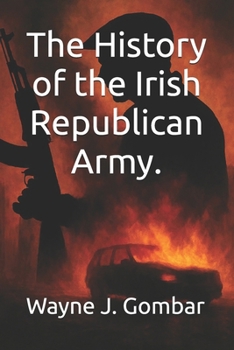The History of the Irish Republican Army
The Troubles: Historical Significance and Context
The Troubles were one of the most turbulent conflicts in modern Europe, lasting from the late 1960s until the 1998 Good Friday Agreement. Centered in Northern Ireland, this struggle combined centuries of contested sovereignty, deep-rooted sectarian division, and demands for justice in a divided society.
The roots of the conflict lay in the 1921 partition of Ireland, which left Northern Ireland under British rule with a Protestant unionist majority. The Catholic nationalist minority often faced discrimination in jobs, housing, and political representation. Inspired by the U.S. Civil Rights Movement, Catholics organized peaceful protests in the 1960s demanding equality. Instead of reform, they were met with police violence and loyalist hostility, sparking riots and unrest. The British Army was deployed in 1969, initially to restore order, but soon became a symbol of occupation to many nationalists.
The conflict escalated into a violent struggle among three forces: republican paramilitaries such as the Provisional IRA, loyalist groups like the UVF and UDA, and the British state. Events such as Bloody Sunday (1972), when British soldiers shot unarmed protestors, and the 1981 hunger strikes brought worldwide attention. Over three decades, more than 3,500 people were killed, including civilians caught in the crossfire.
International involvement-from Irish-American fundraising to U.S. diplomacy and European human rights pressure-played a vital role in shaping peace efforts. The Good Friday Agreement (1998) finally established power-sharing, cross-border cooperation, and the principle that Northern Ireland's status would only change by majority consent.
The Troubles remain a chapter of immense historical significance. They stand as both a warning about the dangers of division and injustice, and as a testament to the power of dialogue, compromise, and the hard road to peace. Wayne J. Gombar is a historian, writer, and researcher specializing in military history, conflict studies, and political violence. He holds a B.S. in Homeland Security and a Master of Science in Emergency Management, and is currently pursuing a Doctor of Criminal Justice (DCJ) at Keiser University. His doctoral research focuses on issues of security, policy, and justice within contemporary society.
Professionally, Gombar has over thirty years of leadership experience in telecommunications and government contracting, including work with secure facilities and complex infrastructure projects. This background provides him with a unique perspective on security dynamics, state power, and the human dimensions of conflict.
Gombar has authored numerous works exploring the history of war, intelligence, and insurgency, with a particular focus on how past conflicts continue to influence present-day politics and security. His writing is marked by meticulous research, narrative clarity, and an emphasis on making complex history accessible to a wide readership.
When not writing, he devotes his time to academic research, publishing projects, and studying the lessons of history that shape today's world.
The Troubles were one of the most turbulent conflicts in modern Europe, lasting from the late 1960s until the 1998 Good Friday Agreement. Centered in Northern Ireland, this struggle combined centuries of contested sovereignty, deep-rooted sectarian division, and demands for justice in a divided society.
The roots of the conflict lay in the 1921 partition of Ireland, which left Northern Ireland under British rule with a Protestant unionist majority. The Catholic nationalist minority often faced discrimination in jobs, housing, and political representation. Inspired by the U.S. Civil Rights Movement, Catholics organized peaceful protests in the 1960s demanding equality. Instead of reform, they were met with police violence and loyalist hostility, sparking riots and unrest. The British Army was deployed in 1969, initially to restore order, but soon became a symbol of occupation to many nationalists.
The conflict escalated into a violent struggle among three forces: republican paramilitaries such as the Provisional IRA, loyalist groups like the UVF and UDA, and the British state. Events such as Bloody Sunday (1972), when British soldiers shot unarmed protestors, and the 1981 hunger strikes brought worldwide attention. Over three decades, more than 3,500 people were killed, including civilians caught in the crossfire.
International involvement-from Irish-American fundraising to U.S. diplomacy and European human rights pressure-played a vital role in shaping peace efforts. The Good Friday Agreement (1998) finally established power-sharing, cross-border cooperation, and the principle that Northern Ireland's status would only change by majority consent.
The Troubles remain a chapter of immense historical significance. They stand as both a warning about the dangers of division and injustice, and as a testament to the power of dialogue, compromise, and the hard road to peace. Wayne J. Gombar is a historian, writer, and researcher specializing in military history, conflict studies, and political violence. He holds a B.S. in Homeland Security and a Master of Science in Emergency Management, and is currently pursuing a Doctor of Criminal Justice (DCJ) at Keiser University. His doctoral research focuses on issues of security, policy, and justice within contemporary society.
Professionally, Gombar has over thirty years of leadership experience in telecommunications and government contracting, including work with secure facilities and complex infrastructure projects. This background provides him with a unique perspective on security dynamics, state power, and the human dimensions of conflict.
Gombar has authored numerous works exploring the history of war, intelligence, and insurgency, with a particular focus on how past conflicts continue to influence present-day politics and security. His writing is marked by meticulous research, narrative clarity, and an emphasis on making complex history accessible to a wide readership.
When not writing, he devotes his time to academic research, publishing projects, and studying the lessons of history that shape today's world.
Format:Paperback
Language:English
ISBN:B0FMYHYMYC
ISBN13:9798298732376
Release Date:September 2025
Publisher:Independently Published
Length:294 Pages
Weight:0.87 lbs.
Dimensions:0.6" x 6.0" x 9.0"
Customer Reviews
0 rating





